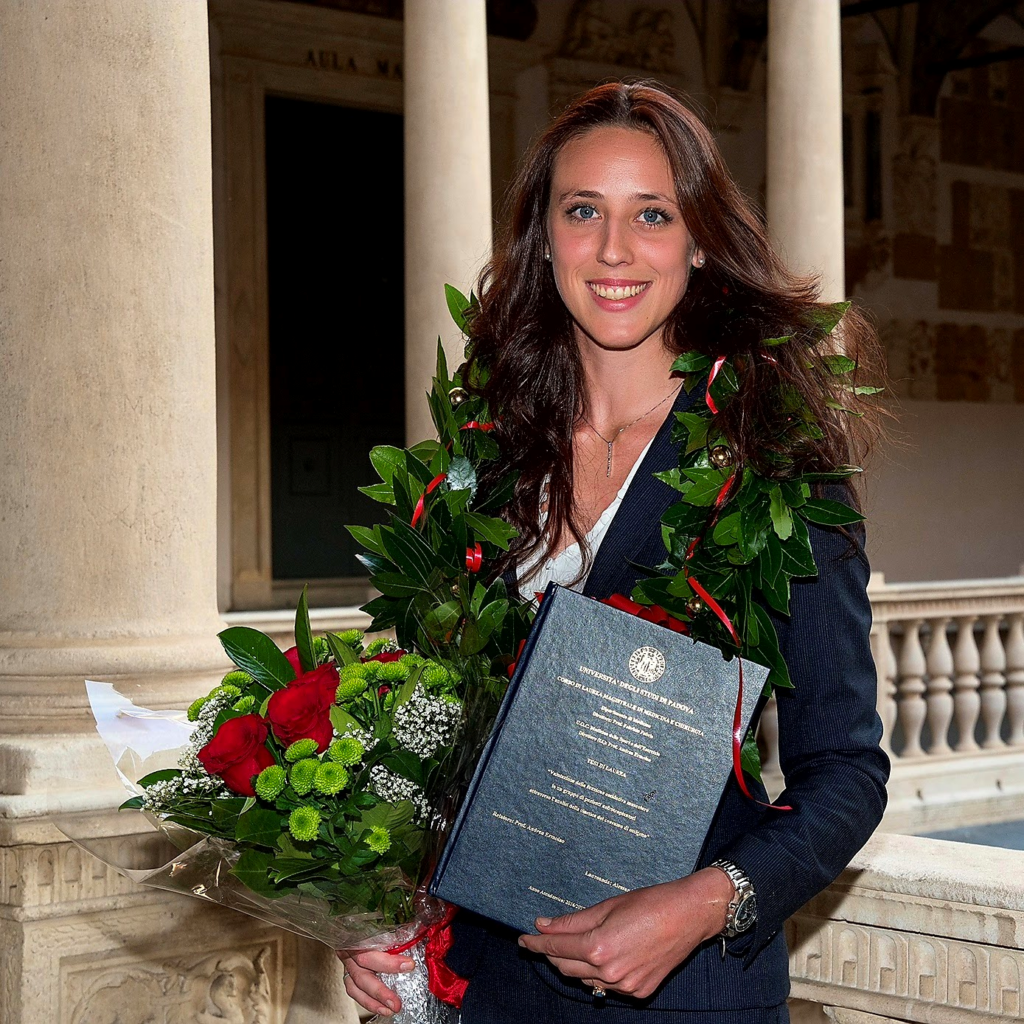
18 Nov 2022
From Teammate to Team Doctor: Alessandra Patelli
Alessandra Patelli, a two-time Olympian, tells World Rowing her juggling act of her two passions: rowing and medicine.
Patelli’s introduction to rowing was somewhat unusual. While many rowers were inspired by family or through their local school, club or university programmes, Patelli’s rowing epiphany came when she travelled from her hometown in Italy to the US to learn English. “My hometown, Conegliano, is a small Italian city with no access to rowing. It had no lakes and no rivers,” she says. “When I went to the US in 2008, the girl I stayed with happened to row and invited me to join at her school. I had no idea what rowing was at the time. I assumed it was similar to canoeing. After a week rowing, the coaches encouraged me to continue back in Italy, and I promptly called my dad asking to try.”
Patelli started rowing at 18, joining the Canottieri club relatively late compared to her peers, but it didn’t stop her progress. Her potential was quickly spotted after winning domestic regattas, and she joined the national team soon after, where she embarked on an exciting and intense rowing career. “One of my early highlights was winning the silver medal in the 2011 World Rowing Under 23 Championships” says Patelli.
Patelli’s career includes representing Italy at the Rio and Tokyo Olympic Games in the coxless pair and double sculls, respectively. Like all athletes, Tokyo was heavily disrupted due to the pandemic. As a doctor, Patelli felt compelled to help the community, assisting in contact tracing and providing remote medical support, but as an athlete was not allowed near hospitals. She eventually decided to continue pursuing elite rowing in the delayed Olympic cycle, at the considerable cost of suspending her medical career for another year.
 Becoming a doctor was a product of an intense juggle alongside her rowing training. ‘There was a lot of pressure”, she reflects. “During that time, academic studies were not very compatible with the sporting world. It was not always easy to ask for study time. Every free moment I had, whether on the plane, on trains or in the hotel, I would put my music on and study.”
Becoming a doctor was a product of an intense juggle alongside her rowing training. ‘There was a lot of pressure”, she reflects. “During that time, academic studies were not very compatible with the sporting world. It was not always easy to ask for study time. Every free moment I had, whether on the plane, on trains or in the hotel, I would put my music on and study.”
Patelli has now transitioned to be a team doctor in the Italian Rowing Team. “I still feel like an athlete and the process of stopping as an athlete is difficult, but I am lucky because I can stay in the team and be involved in rowing as a doctor,” she remarked.
Asked whether she missed training, Patelli laughed, “I don’t miss the tests! I do miss that feeling in the water and being part of the national team, which is a special feeling”.
As a team doctor, she would be particularly involved during training camps, helping athletes through a range of issues, with back injuries, repetitive strain disorder and stress fractures a particular problem. As a female doctor, Patelli also pays particular attention on gender-specific issues, such as performance relating to the menstrual cycle.
“Athletes also need to understand when to stop,” councils Patelli, her tone switching to a bedside manner, “Sometimes rowers just want to work, work, work and forget to let the body rest. Rest is as important as training.” As a former athlete, Patelli is also able to give more tailored medical support, “I understand the rowing movement, I understand the pain, I understand how an athlete thinks. I also have a strong relationship with many of them, so I know how best to help.”
Despite witnessing injuries, Patelli was quick to advocate the huge benefits of rowing for people’s health. “It is an amazing sport. It gives you strength, coordination, and balance and is a complete full-body exercise. It also gives you mental strength. We become so competitive, strong-minded and tough, and I bring that to my work every day as a result of rowing.’
Having by coincidence, just the day before this interview, completed her specialist training in sports medicine, a culmination of 11 years of effort, Patelli is now at a crossroads. She is determined to progress on her medical career, both for the national team and alongside her other work helping younger people with heart disease with bespoke care.
However, rowing is never far from her mind, “I have only been out on the boat twice this year because my supportive husband, Simone Martini (also an Italian national team rower), took me out. It’s like an addiction. Once restarted, now I might start rowing more again”, she says mischievously.

